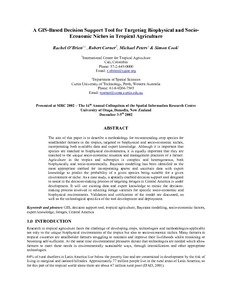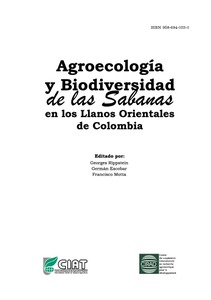Mission
To reduce hunger and poverty, and improve human nutrition in the tropics through research aimed at increasing the eco-efficiency of agriculture.
People
CIAT’s staff includes about 200 scientists. Supported by a wide array of donors, the Center collaborates with hundreds of partners to conduct high-quality research and translate the results into development impact. A Board of Trustees provides oversight of CIAT’s research and financial management.
Values
- Shared organizational ethic
- We respect each other, our partners, and the people who benefit from our work. We act with honesty, integrity, transparency, and environmental responsibility in all of our joint endeavors.
- Learning through partnerships
- We work efficiently and pragmatically together and with partners. Considering our diversity to be a key asset, we adapt readily to change and strive to improve our performance through continuous learning.
- Innovation for impact
- We develop innovative solutions to important challenges in tropical agriculture, resulting in major benefits for the people who support, participate in, and profit from our work.
Members:
Resources
Displaying 446 - 450 of 958A GIS-based decision support tool for targeting biophysical and socioeconomic niches in tropical agriculture
Teledetección para la cartografía de la vegetación de sabana
Superior and diverse grasses and legumes delivered to NARS partners are evaluated and released. Output 4
Sensory evaluation of upland rice varieties with farmers: A case study
As part of a participatory plant-breeding project with methodological objectives lo improve rainfed rice in eastern India, an evaluation of sensory characteristics was conducted with farmers in a village of Bihar. Twenty-four farmers (12 women and 12 men) evaluated 15 upland rice varieties as raw rice and parboiled rice for milled and cooked rice appearance, color, odor, texture, stickiness, taste, and overall acceptability.




